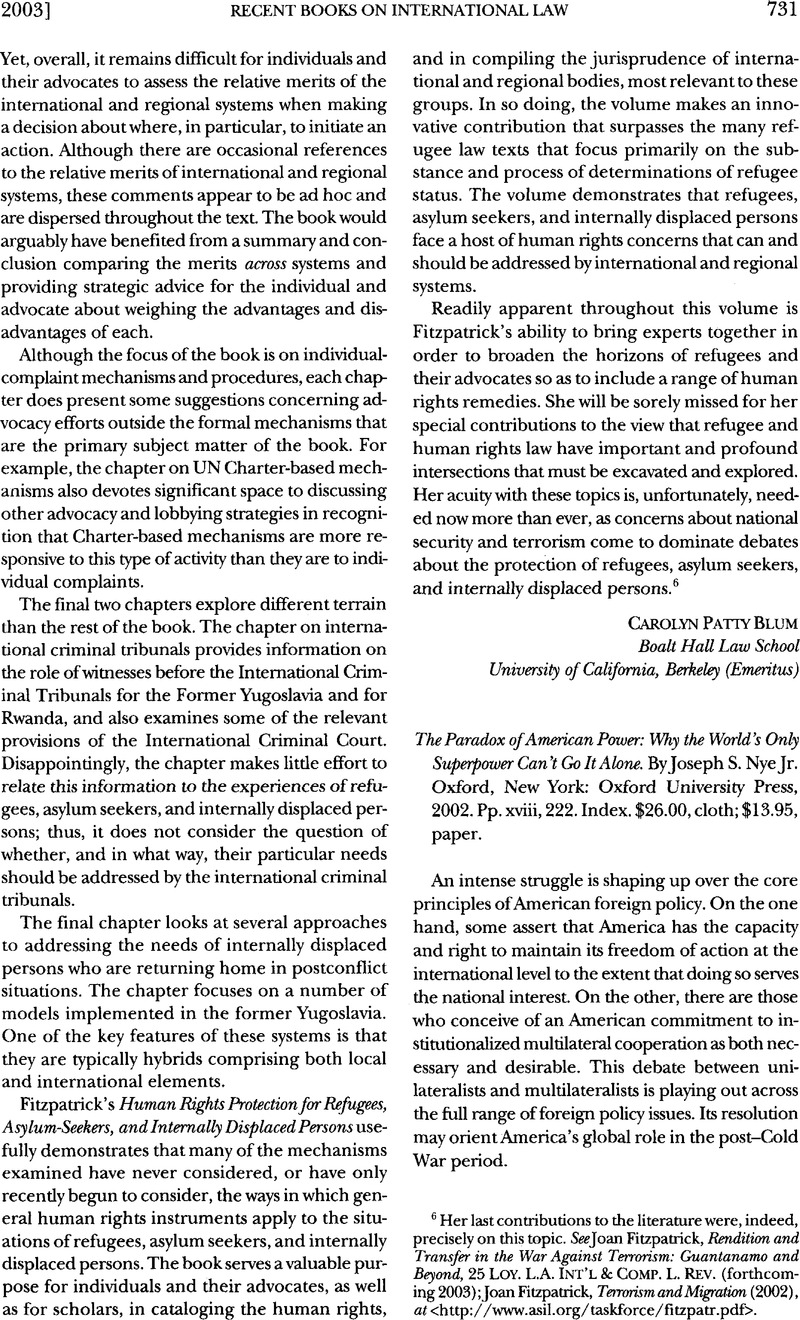Article contents
The Paradox of American Power: Why the World’s Only Superpower Can’t Go It Alone. By Joseph S. NyeJr. Oxford, New York: Oxford University Press, 2002. Pp. xviii, 222. Index. $26.00, cloth; $13.95, paper.
Published online by Cambridge University Press: 27 February 2017
Abstract

- Type
- Recent Books on International Law
- Information
- Copyright
- Copyright © American Society of International Law 2003
References
1 Keohane, Robert O. & Nye, Joseph S. Jr., Power and Interdependence in the Information Age, Foreign Aff., Sept./Oct. 1998, at 81 Google Scholar.
2 See also, e.g., Franck, Thomas M., Community Based on Autonomy, 36 Colum. J. Transnat’l L. 41 (1997)Google Scholar.
3 Nye remains a believer in the melting-pot model of assimilation, which he deploys to rebut a flagging new nativist agenda advocating restrictionist immigration policies (seep. 118). In so doing, he also at least implicitly rejects the postnational premises of such social scientists as Arjun Appadurai and Yasemin Soysal. See Appadurai, Arjun, Modernity at Large: Cultural Dimensions of Globalization (1997)Google Scholar; Nuhoglu Soysal, Yasemin, Limits of Citizenship: Migrants and Postnational Membership in Europe (1994)Google Scholar.
- 1
- Cited by




